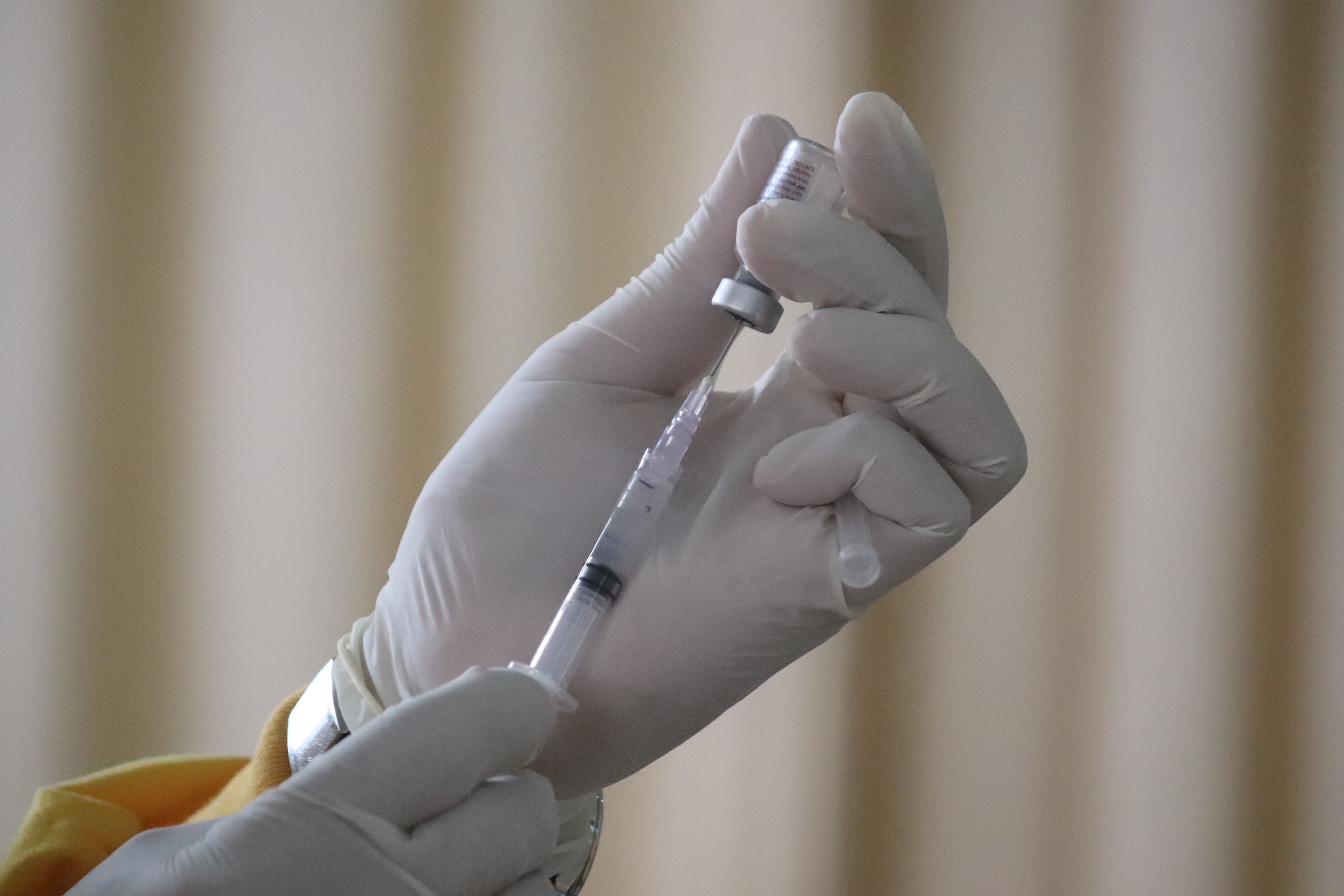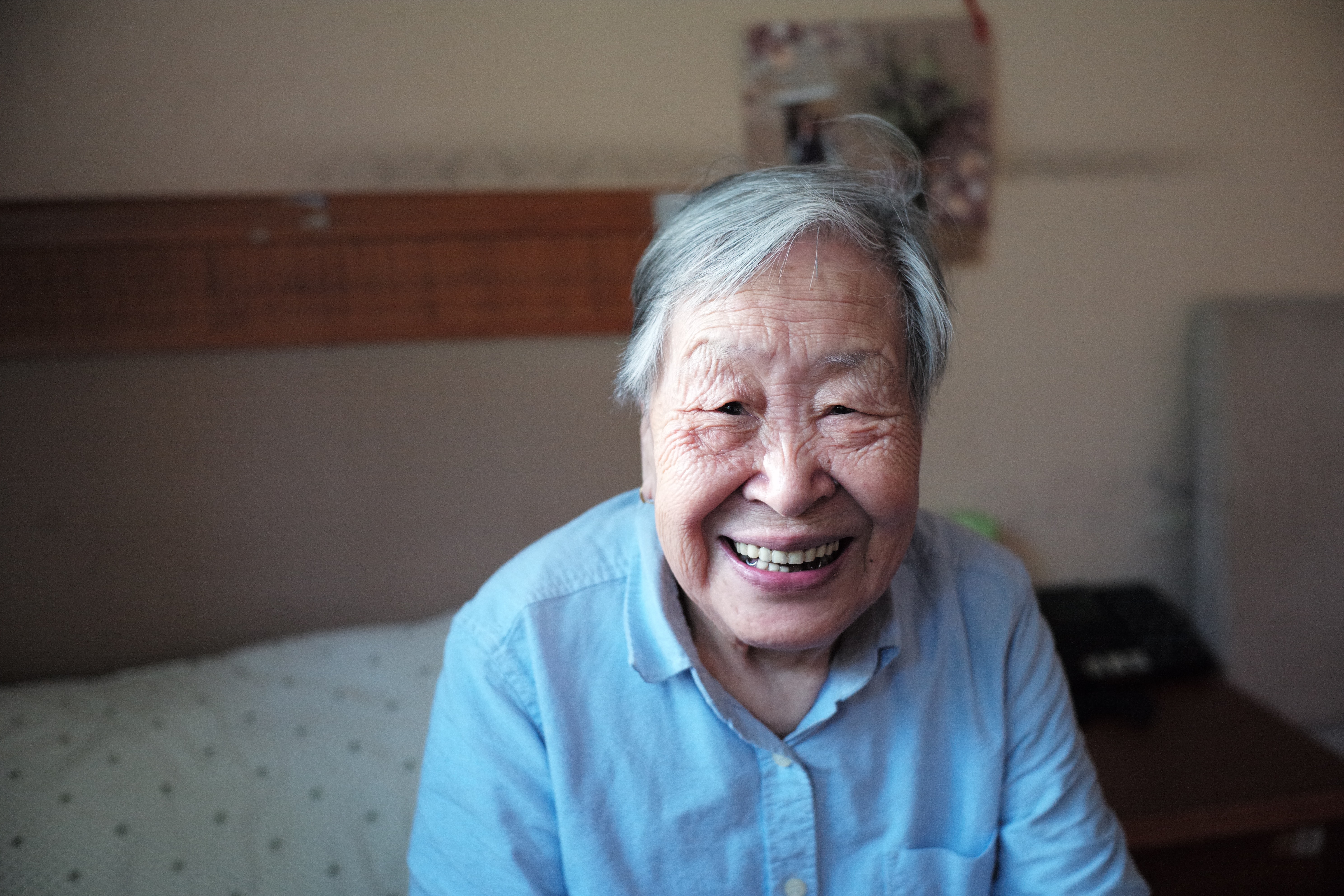Do We Still Need To Worry About COVID-19? We Got A Medical Expert To Share His Thoughts
Early detection could save your life!
With the pandemic having transitioned into the endemic stage in Malaysia, and the relaxation of SOPs that came with it, life seems to have gone back to normal¹
When COVID-19 hit our country at the beginning of 2020, the government implemented strict rules for everyone's safety, including several Movement Control Orders (MCO)².
However, with more than 80% of the population having been vaccinated³, there has been a gradual relaxation of behaviours too. We don't have to check in with MySejahtera wherever we go, and physical distancing as well as mask wearing have been loosened as well¹.
While it's been nice to finally be able to start doing things the way we used to, the question remains — do we still need to worry about COVID-19?
To get a better understanding on the COVID-19 situation in Malaysia and what Malaysians should do to protect themselves, we spoke to Dr Helmy, who is a consultant lung specialist
After graduating from Newcastle University, Dr Helmy Haja Mydin did his practical training and received his Certificate of Completion of Training from the Royal College of Physicians, UK for general and respiratory medicine.
He made his return to Malaysia in 2014 when he was appointed as an associate professor at University Malaya's Faculty of Medicine. Since Dr Helmy is a Consultant Respiratory Physician, he treats COVID-19 patients as well.
According to Dr Helmy, each of our bodies is different, in terms of immune systems and whether you get symptomatic disease⁴.
Some people are more likely than others to get very sick if they get COVID-19⁵.
This includes people who are older, are immunocompromised, have certain disabilities, or have underlying health conditions⁵.
"Having a weakened immune system, also known as being immunocompromised, can make you more likely to get very sick if you get COVID-19. People who are immunocompromised, or who are taking medicines that weaken their immune system, may not be protected as well as others⁵," said Dr Helmy.
"Certain underlying health conditions you have, for example, obesity or chronic obstructive pulmonary disorder, may also affect your risk of becoming very sick if you get COVID-19. Often, the more health conditions you have, the higher your risk. For example, severe heart disease increases your risk more than high blood pressure⁵."
Comorbidities are the presence of two or more diseases in the same person. So, for example, if a diabetic patient developed COVID-19, they would have comorbidities. Comorbidity includes patients who have concomitant diseases like asthma, chronic obstructive pulmonary disease, chronic kidney disease, various heart conditions, such as heart failure and coronary artery disease, and obesity⁶.
Dr Helmy also goes on to share that in Malaysia, unfortunately, the most common comorbidity is people who are overweight and obese⁷.
There is also a fairly high level of patients with diabetes, high cholesterol, and hypertension, mainly due to poor diets and lifestyles⁷.
Having a disease would weaken the body's systems, making it difficult for the body to eliminate the cause of the disease and to fight invaders, like viruses and bacteria. When two or more conditions are present at the same time, this can be very taxing to the body, and the affected person may need a longer time to recover than someone who does not have any comorbidities⁶.
Many believe that if you are vaccinated or have had COVID-19 before, you'll be immune from contracting the virus in the future. However, is this really true?
"Some people may believe that after they have gotten a natural infection, they will be permanently protected against COVID-19 as if this were measles. However, the two viruses that cause these infections are very, very different. The coronavirus protection wanes naturally after a period of time⁸," Dr Helmy explained.
"COVID-19 vaccination, however, remains effective in preventing severe disease as they are designed to create a large immune response. However, they are not 100% effective and therefore the need for a booster shot may become standard like it is annually for the flu, especially to protect against new variants of the virus that causes COVID-19⁸."
"And even though vaccines may reduce risk of severe disease, some people, particularly older adults with multiple underlying health conditions or people who are immunocompromised, can still get very sick from COVID-19⁵," cautioned Dr Helmy.
This serves as a reminder that we shouldn't take COVID-19 lightly and should continue to take the necessary precautions to protect ourselves and our loved ones
To protect yourself and your loved ones from developing complications from COVID-19, frequent at-home testing will help with early detection of the virus⁹.
"Carry out self-testing if you are experiencing upper respiratory symptoms such as cough, sore throat, new loss of taste or smell, difficulty breathing, or have had a close contact with someone who has symptoms¹⁰ ¹¹. This is to ensure you don't pass it on to your loved ones, especially those who are at high risk for severe COVID-19⁹," advised Dr Helmy.
It is also important to detect infections early because treatment for COVID-19 should be started as soon as possible after diagnosis to be effective¹²
"If you test positive for COVID-19, treatments are available that can reduce your chances of severe illness including hospitalisation and death. Please don't delay because treatment must be started within days after you first develop symptoms to be effective¹¹," said Dr Helmy.
"In summary, if you have a fever, take some paracetamol. If you have a runny nose, a decongestant nasal spray can help relieve a stuffy nose and make it easier to breathe¹³. However, if you do have COVID-19 and especially if you are at high risk for severe COVID-19, then act fast and consult your doctor immediately for appropriate care and treatment¹²."
Medications to treat COVID-19 must be prescribed by a healthcare provider and started as soon as possible after diagnosis to be effective. Please contact your doctor immediately so that they can determine if you are eligible for treatment, even if your symptoms are mild right now¹².
Stay vigilant and conduct self-test if you experience COVID-19 symptoms⁹.
Act fast and consult your doctor immediately, even if your symptoms are mild right now because treatment must be started as soon as possible to be effective¹².
PP-PAX-MYS-0149-6DEC2022
The article is brought to you by Pfizer Malaysia. The contents represent the opinions and experience of respective individuals and do not necessarily represent the views or recommendation of Pfizer.
The information provided is for educational and communication purposes only and it should not be construed as personal medical advice. Information published in this article is not intended to replace, supplant or augment a consultation with a health professional regarding the reader's own medical care.
References
¹ Free Malaysia Today. Health experts welcome loosening of Covid-19 SOPs. Last accessed: 29 Nov 2022. Retrieved from: https://www.freemalaysiatoday.com/category/nation/2022/04/27/health-experts-welcome-loosening-of-covid-19-sops-from-may-1/
² Yahoo News SG. New MCO in 6 Malaysian states for 2 weeks. Last accessed: 29 Nov 2022. Retrieved from: https://sg.news.yahoo.com/movement-control-order-6-malaysian-states-muhyiddin-103012784.html
³ COVIDNOW. Vaccinations in Malaysia. Last accessed: 29 Nov 2022. Retrieved from: https://covidnow.moh.gov.my/vaccinations
⁴ Utrecht University. Our immune system is as unique as a fingerprint or our DNA. Last accessed: 16 Dec 2022. Retrieved from: https://www.uu.nl/en/news/our-immune-system-is-as-unique-as-a-fingerprint-or-our-dna
⁵ Centers for Disease Control and Prevention (CDC). Factors That Affect Your Risk of Getting Very Sick from COVID-19. Last accessed: 29 Nov 2022. Retrieved from: https://www.cdc.gov/coronavirus/2019-ncov/your-health/risks-getting-very-sick.html
⁶ Health. Claire Gillespie. Why Comorbidities Are a Risk Factor for Severe COVID-19. Last accessed: 28 Oct 2022. Retrieved from: https://www.health.com/condition/infectious-diseases/coronavirus/comorbidities-meaning-covid
⁷ CodeBlue. Survey: 1.7 Million Malaysians Risk Three Chronic Conditions. Last accessed: 28 Oct 2022. Retrieved from: https://codeblue.galencentre.org/2020/05/29/survey-1-7-million-malaysians-risk-three-chronic-conditions/
⁸ Healthline. How Long Does Immunity Last After COVID-19? What We Know. Last accessed: 28 Oct 2022. Retrieved from: https://www.healthline.com/health-news/how-long-does-immunity-last-after-covid-19-what-we-know
⁹ Centers for Disease Control and Prevention (CDC). Self-Testing At Home or Anywhere. Last accessed: 30 Nov 2022. Retrieved from: https://www.cdc.gov/coronavirus/2019-ncov/testing/self-testing.html
¹⁰ Centers for Disease Control and Prevention (CDC). COVID-19 Testing: What You Need to Know. Last accessed: 28 Oct 2022. Retrieved from: https://www.cdc.gov/coronavirus/2019-ncov/symptoms-testing/testing.html
¹¹ Centers for Disease Control and Prevention (CDC). Symptoms of COVID-19. Last accessed: 28 Oct 2022. Retrieved from: https://www.cdc.gov/coronavirus/2019-ncov/symptoms-testing/symptoms.html
¹² Centers for Disease Control and Prevention (CDC). COVID-19 Treatments and Medications. Last accessed: 28 Oct 2022. Retrieved from: https://www.cdc.gov/coronavirus/2019-ncov/your-health/treatments-for-severe-illness.html
¹³ InformedHealth.org. Cologne, Germany: Institute for Quality and Efficiency in Health Care (IQWiG); 2006-. Common colds: Relief for a stuffy nose, cough and sore throat. [Updated 2020 Oct 8]. Last accessed: 28 Oct 2022. Retrieved from: https://www.ncbi.nlm.nih.gov/books/NBK279542/





